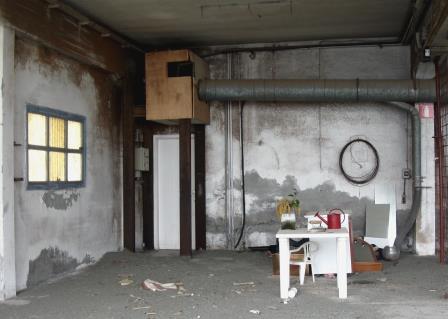 (In the first part of this article, I showed a situation of homeless children in Podkarpackie Region based on CSO data. In present part, I`m going to describe the research methodology and the final results of in-depth interviews with those children.
(In the first part of this article, I showed a situation of homeless children in Podkarpackie Region based on CSO data. In present part, I`m going to describe the research methodology and the final results of in-depth interviews with those children.
The research methodology
The entire project “Children Rough Sleepers” assumes the analysis of the phenomenon from the viewpoint of aid institutions as well as the children and the youth who experience homelessness. The established objectives were adjusted to the research conducted in every group in order to ensure the possibility of comparison from the viewpoint of two types of subjects of the research. The scope of the report comprises the presentation of the results of the research conducted in the group of children and the youth in Poland. The general research aim was to determine the nature and the causes of the phenomenon of homelessness among the group in question. Specific objectives comprised:
– the identification of the factors causing homelessness;
– the determination of the nature of homelessness;
– the indication of the key experience connected to homelessness;
– the identification of the factors that eliminate and prevent homelessness.
Owing to the complexity of the notions “child” and “homelessness”, and the multitude of operative definitions that can be adopted, it has been decided that the term “child” will denote every human being under the age of 18. “Homelessness” has been defined on the basis of three semantic distinguishing features, namely: homelessness, flatlessness and lack of roof over the head among the children who have been described by means of various characteristics, including: living on the street, spending there most of the time or remaining out of control of the adults, as well as runaways or situations in which a child is not properly protected. The research was conducted by means of a semi-structured questionnaire of an in-depth interview consisting of 38 questions. In total, in the researched target group there were conducted 20 interviews. The majority of the questioned were slightly over 18 (however, it has been assumed that they experienced homelessness before they have become adults). Younger children that were interviewed were questioned in the presence of their carers.
The results of the research among children
Aim 1. The identification of the factors causing homelessness
The interviewed indicated alcoholism of one or both parents as a factor causing homelessness.
‘Our father was an alcoholic, and mother just left us. Quite often, she was leaving us for a few, sometimes several days and I had to take care of my siblings myself because dad was unable. It was noticed at school that I often had unexplained absences, so my parents were being called, and then a school inspector intervened. As a result, we all ended up in a kids shelter. I had a little, nearly one-year-old brother and he couldn’t stay with us there, but he was taken to an orphanage for small children, where he was placed for adoption. I still don’t know where he is.’
‘Everything started when I was 9 or 10. My dad was an alcoholic. He drank heavily, and mum couldn’t cope with him or with us. Once, he stopped drinking, but when started again, it was terrible. After the intervention of family’s friends, I and my siblings were placed in a kids shelter and then in an orphanage.’
Sometimes, as a cause of homelessness, the interviewed indicted conflicts with parents, including generally different vision of their lives, or were not able to indicate the main reason, and only pointed to a direct action that caused homelessness.
‘It was a court’s decision to put me and my siblings here. It was when I was 13. The social welfare decided that we couldn’t stay in our family any longer.’
However, in the majority of cases, the questioned could state which factors in family and social matters could cause such situation.
‘My father is an alcoholic, parents divorced when I was 13 because my four-year-old sister died. Then I was placed in a kids shelter.’
Aim 2. The determination of the nature of homelessness
In overwhelming majority of the analysed cases, homelessness was of institutional character. For various reasons, children were placed in various care centres, including youth centres and orphanages. A part of the interviewed were living in foster families, but their stay there ensued from being put into institutional care. Some of the questioned children remained in care centres, whereas some others came back to their family homes. Only in some instances (two out of the twenty diagnosed) homelessness was of the hardest, traditionally understood nature.
‘When I run away from there (from educational care facility – author’s note), it was nice when I was with my friends. It was also nice when I had money. But when I run out of money, I had to come back to the centre. Sometimes, I stayed the night in warehouses, sometimes at friends’. Now, I’m with my mum and we are living together.’
‘I was not alone, but with a friend. We were sleeping in an unfinished house, I liked the independency. We could smoke and drink alcohol (…). I wasn’t living on the street, but in a house in which nobody lived, it was rather a building site (…). I was hiding for a week, then I run out of money and went first to my grandma, my parents took me from there.’
Quite frequently, in the cases of the interviewed that decided to leave their family home the homelessness was of hidden nature. Those people came back home, e.g., after one or a few days of the absence. During this time, they were sleeping at friends’. Some of the interviewed people were coming back home for the night but decided to stay outside for as long as they could, since they believed that during that time they were safe.
Aim 3. The key experience connected to homelessness
Homelessness was for all the questioned quite an experience, in some cases traumatic one. The interviewed indicated that even when they themselves decided to run away from home, they did not feel secure.
‘[To the question if they feel safe] It’s strange, but I don’t know. In the orphanage I did. Now, I have a problem, because I don’t know what to do next. I’m graduating from school and I have no idea.’
‘[To the question where they feel safe] Here [in the orphanage – author’s note], but I would like to go abroad to be independent. Earn some money.’
The interviewed children also stated that the necessity of moving to a kids shelter or a care centre has been an unpleasant experience.
‘I don’t know what it is like on the street, but being moved from one centre to another wasn’t nice. But I couldn’t return home. Together with my brother we were placed in a youth centre and then in an orphanage. I wasn’t on the street, but in institutions (…). I didn’t roam around, but I was separated from my sister. We have contact now.’
‘Then I was placed in a kids shelter (…). When I run away from there, it was nice when I was with my friends. It was also nice when I had money. But when I run out of money, I had to go back to the centre. Sometimes I stayed the night in warehouses, sometimes at friends’. Now, I’m with my mother, we are living together (…). Such run-aways lasted no longer than 3 weeks. It was a few times. [To the question where they feel safe] In my home. I didn’t like [the care centre – author’s note]’.
‘Social welfare was not interested in us (…). Then, when we were placed in a kids shelter it was so-so. It was simply a storage. There was nothing special. I’m still terrified of such places. They are terrible (…). When we were placed in the kids shelter it was an awful place. We all were taken from home and lived there for some time, in the kids shelter. It was a terrible place. I was scared. I didn’t live on the street because we were directly taken to the kids shelter. I would never come back there.’
In retrospect, some of the interviewed who have managed to become independent noticed some positive aspects of living in an educational care facility. Some of them are convinced that owing to the residence in such a place, they acquired essential skills that they would not learn in the family.
‘Thanks to the foundation [running the orphanage – author’s note] I had a normal house and a better start. They took care of us very much (…). When I was in the orphanage, I learned almost everything. In my family house, there was nobody who could teach me that. First of all, I’ve been taught to respect other people, and I consider it extremely important.’
‘Essentially, in the orphanage I had support from our principal; we call her our auntie (…). Thanks to their help, I am studying at a high school; I’ve passed my driving test.’
‘[in the orphanage – author’s note] We were taken care of very well. It was nothing like in the kids shelter. Virtually, there was a children storage (…). It is not a home, but in retrospective, I wouldn’t change this experience for anything else. It may be strange, but I wouldn’t like to have a normal family, because what I experienced in the orphanage was simply love and respect. I’ve been taught there to accept myself and others, and I don’t think I could learn that in my family.’
Aim 4. The factors that eliminate and prevent homelessness
The questionnaire of an in-depth interview included some questions concerning the ways in which the interviewed managed to survive on the street, find way out of this situation and start their lives, so to speak, from the beginning. Due to the fact that part of the questioned have still lived in institutional centres, and only some of them have returned to their families or decided to become independent, the obtained answers refer to different life contexts.
All children assess their current situation positively. It chiefly ensues from the fact that the word “homelessness” has been understood in the number of ways equal to the number of the children being questioned. The key to understand the phrase “I have managed to get out of homelessness” is in this case the statement of a child that their present life situation is satisfactory for them and that they would not like to return to the previous one (understood anyway). Quite frequently indicated factor behind “getting out of” homelessness was the help from unknown people. Sometimes it was an employer of care centre, and sometimes the parents of these children’s friends.
‘Thanks to their help [the employers of the orphanage – author’s note], I am studying at a high school, I’ve passed my driving test.’
‘I had no strategy. Simply, it was good in the orphanage. As opposed to the kids shelter. In the orphanage I didn’t have to pretend anything (…). I could return back home. This environment didn’t constitute a threat any longer. Simply, there was a procedure and I could return.’
In some instances the questioned received help from their peers, and in one case, a child themself took decision to end consciously chosen homelessness.
‘My friends were helping me. They provided for me (…). I don’t know myself, how that happened.’
‘Thanks to my boyfriend’s help.’
‘I had no choice, I came back to my grandma, I was too young to manage on my own.’
In reference to the factors that could prevent the experience of homelessness in their lives, the interviewed were first asked about receiving help before the critical situation occurred. They all indicated that this help either did not come at all or was marginal and inadequate, even if it was offered from the closest.
‘I had no support. Social support was offered, but it is not money that constitutes a problem.’
‘My mother had no support and was on her own in this. Apart from that, I have also siblings and when my dad was drinking, we were simply alone. Nobody helped us. We had nobody to talk to. No social welfare was interested in us, to help dad to get out of it.’
‘I wasn’t receiving any help. I was hiding, so I couldn’t ask anybody for help.’
‘My grandparents were supporting me as long as they lived.’
‘In the kids shelter, a psychologist tried to help me, but to little effect.’
‘I didn’t have such experience. Nobody helped us. Maybe, apart from the family’s friends who tried to intervene when they realised what is going on. Essentially, I had a sort of support, but nothing apart from that.’
The key issues indicated by the questioned as regards the factor that could prevent their homelessness were the support available to their families, strengthening the ties and the solution of problems inside the family. The following answers were given to the question whether something could stop them from running away from home or becoming homeless: ‘Maybe, if dad hadn’t drunk, it wouldn’t have happened…’
‘Yes, responsible parents.’
‘Well-ordered life, normal family, not one in which everything fell apart.’
While indicating particular factors, the elder from the interviewed tried to diagnose the causes of such situation more deeply; they pointed to a concurrence of factors within the functioning of a family itself.
‘I bear a grudge, or maybe even more than that, against my father’s mother, because she was a bad woman. She was hiding her son’s alcoholism and swept everything under the carpet. But it doesn’t work like that. If she had helped my mother and if my dad’s sisters had helped too, we might have not been sent to an orphanage. But it happened. I have a terrible grudge against them, primarily, because they left mum with all of these’.
‘I think that if someone had helped my father in the right time to get out of alcoholism, it would be good. I bear some grudge against his siblings that they didn’t help him then. They didn’t help us either. I don’t bear a grudge against my mother. Pathology has been in her family for generations.’
In the context of the entire interviews and the stories told by the questioned, the above answers only confirm a frequent postulate that in a properly functioning family the probability that a run-away will take place is slight, and only in extreme cases, when nobody can be blamed, underage family members are taken from homes and placed in a care centre. The interviewed stated that the sense of security in their family homes was frequently shaken. In such situation, the answers were consistent with the indications of the workers of the institutions aiming to help homeless children, who, in a number of instances, pointed to love, respect and honesty in a family as a key recipe.
Conclusion
The nature of homelessness identified among the interviewed apart from its institutionalisation was distinguished by different duration. In the case of placing a child in a care centre, the homelessness usually lasted longer than in the case of run-aways. It ensues not only from the procedures for handling the underage being placed in care centres but also from different nature of homelessness.
In the case of the questioned being controlled by the law, the time of living outside family home – either in orphanages or foster families – could amount to years. As regards the ones who chose to run away, this time was significantly shorter (from a few days to a few or several weeks). The factors causing homelessness within the scope of the functioning of the families of the interviewed repeated independently of its nature (institutionalised or running-away).
These were mainly problems with alcohol of one or both of the parents, or parental ineptitude. They affected the sense of security among children and the youth; however their existence resulted in various “nature” of homelessness. As a result, some of the questioned who experienced those problems were placed in the centres of foster care, some – struggling with them further – temporarily found themselves on the street (broadly understood). Those two factors constituted the main causes of homelessness among the interviewed. There were also diagnosed the instances in which the reason ensued from a vision of the world different from their parents’ vision.
Then, the decision to run away and stay outside home resulted from rebellion rather than a real threat. Generally, those run-aways ended quickly, frequently as a result of becoming aware of their situation (experiencing problems in the circumstances of homelessness, understanding that living outside home is not comfortable, etc.).
The elder of the interviewed, who have managed to become independent emphasised that their present life situation is better than the one before becoming homeless. Basically, apart from the fact of living in a youth centre or temporarily in a care centre for homeless mothers with children, the majority of the questioned stated that during their stay in an orphanage or a foster family they experienced real care, concern and even love, and this time brought into their lives something new and good, which they had not experienced before.
Bibliography
Adamczyk B., 2015, Dzieci ulicy w Polsce in a świecie. Definicja, typologia, etiologia, Akademia Ignatianum, Wydawnictwo WAM, Kraków.
National Census of Population and Housing 2011 – Narodowy Spis Powszechny Ludności i Mieszkań 2011, 2012, GUS, Warszawa.
Population. Socio-demographic condition and structure – Ludność. Stan i struktura demograficzno-społeczna. Narodowy Spis Powszechny Ludności i Mieszkań 2011, 2013, GUS, Warszawa.
Zdjęcie: EveBlackwood (on rgbstock.com)




